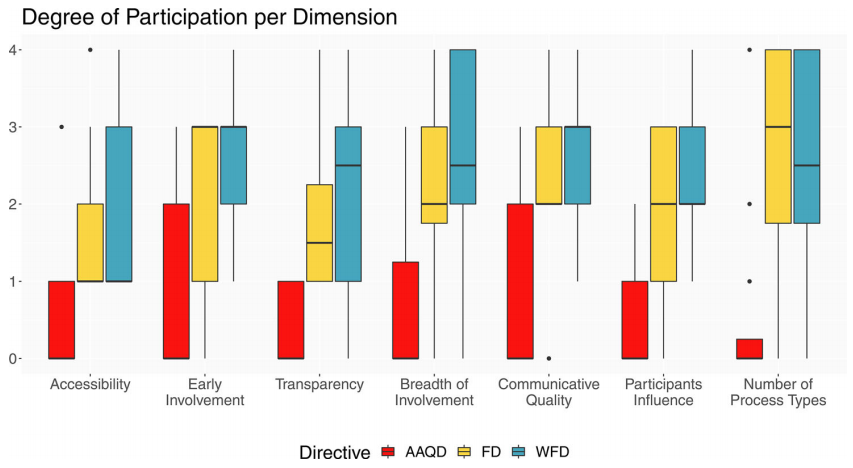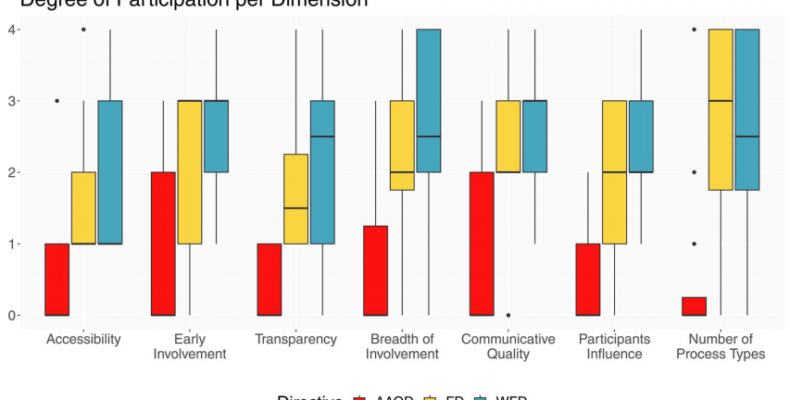Gollata J.A.M., Kochskämper E., Jager N.W., Newig J.
DOI: https://doi.org/10.1080/09640568.2021.1876002
Abstract:
In environmental governance, participatory modes of political decision-making and planning are becoming more prevalent. A rationalist model of governance would assume that instrumental rationales prevail in choosing participatory process designs. Some argue, however, that public policy-makers also follow administrative or governance ‘culture’. The concept of participatory governance culture assumes that historically grown institutional traditions, rationales and routines predetermine administrative practice. This paper empirically maps whether differences in participatory approaches can be explained by variation in participatory governance cultures. We study participatory governance in implementing the participatory provisions of three EU environmental directives in German federal states. Results indicate that although statutory requirements play a role in implementation process design, state-specific patterns can be observed. Studying participatory governance cultures seems viable to (1) enrich the theory of participatory planning through greater attention to governance cultures and to (2) offer an explanatory model on variation in implementation processes within one policy field.

